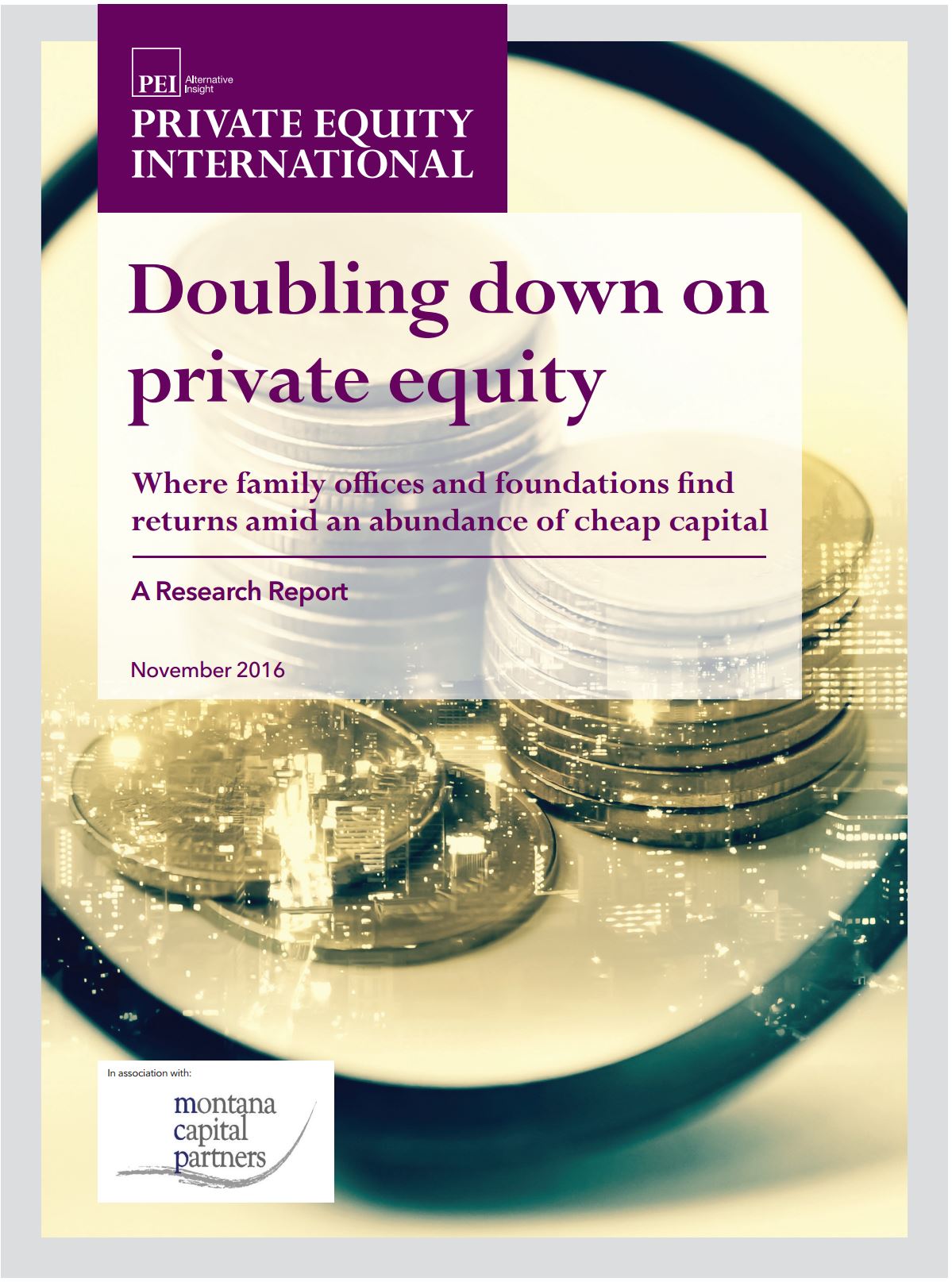Reliable
Independent
Innovative

mcp’s 4th study on investment behaviour of family offices and foundations
Press release:
Family offices and foundations seek stability in private equity
- Half of family offices and foundations increased their exposure to private equity in 2016.
- 43 percent are planning to increase their allocation further over the next 12 months.
- Long-term strategic reasons and attractive pricing in the current market are the most likely factors for doing active portfolio management via secondaries.
- Amid an abundance of cheap capital, the greatest concern for those surveyed is that GPs may be buying into companies at too high valuations.
London/Zug, 30 November 2016. A new survey published jointly by Private Equity International and Montana Capital Partners shows that the majority of family offices will either maintain or increase their exposure to private equity - despite an abundance of cheap capital driving prices higher across asset classes.
Private Equity International and Montana Capital Partners carried out the fourth annual family office and foundation private equity survey in October, to reveal the investment preferences and appetites of these institutions. Entitled 'Doubling Down on Private Equity'. If you are interested in the full report, please send us an e-mail to .
According to the findings, stable returns continue to attract family offices and foundations to the asset class, with 34 percent of respondents allocating more than 20 percent of their investment portfolios to private equity and almost two thirds allocating more than 10 percent. In 2017, 43 percent of those surveyed plan to increase this exposure further despite already high allocations.
Mid-market buyout remains the preferred strategy for the investor group, as a market with attractive returns at reasonable prices. Private debt has also risen in popularity among respondents this year; a change that is reflective of sentiment in the investor community generally.
Roughly half of respondents have an active involvement with the secondaries market and family offices continue to consider secondaries to be an attractive private equity strategy. Small secondaries were particularly mentioned as the most attractive segment within the secondaries market. The majority of participants cite either long-term strategic reasons or attractive pricing in the current market as factors for selling positions in the secondaries market today.
GPs buying into companies at excessive multiple values was the most widely shared market concern highlighted in the survey results, alongside an economic slowdown leading to decreasing EBITDA growth. Aside from picking the right investments, other issues identified by those surveyed included increasing fund and individual ticket sizes, as well as the difficulty of recruiting and retaining quality employees at the GP level.
The impact of Britain's decision to leave the European Union garnered a mixed response from respondents, partly due to the geographical mix of investors, some of which have little or no exposure to Brexit. However, more than half considered a temporary hold on investments with exposure to Britain or Europe to be an appropriate response.
Marco Wulff, partner at Montana Capital Partners, commented: "Our survey shows that private equity plays an important role in portfolios of large and experienced investors". "We are delighted to hear that secondaries are so high up on investors' agendas, both as a potential investment and as a tool to seek liquidity solutions," adds Christian Diller, partner at Montana Capital Partners.
Dan Gunner, research director at Private Equity International, commented: "The survey results illustrate that family offices will strengthen their commitment to private equity in the coming year. Given low yield in other asset classes, these investors believe private equity should play an even bigger role in their portfolios".
Methodology
Single family offices, multi-family offices, foundations and endowments globally were surveyed by email in October 2016. A smaller group of investors were then interviewed by telephone to give colour to the results.
If you are interested in this topic, please feel free to contact us under



